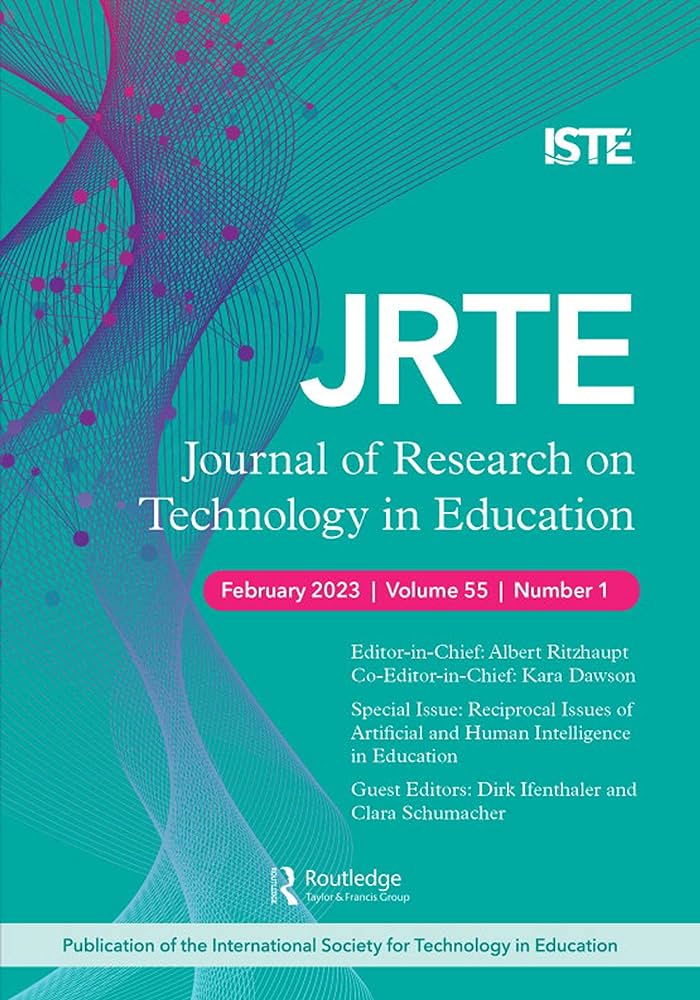A research-based conceptual framework for inclusive K-12 online, distance, and digital education
IF 5
2区 教育学
Q1 Social Sciences
Journal of Research on Technology in Education
Pub Date : 2023-10-11
DOI:10.1080/15391523.2023.2264982
引用次数: 0
Abstract
AbstractK-12 students who were identified or at risk of being identified as having disabilities had been entering learning environments that were fully or partially online. The increase in participation of this population and the emergency circumstances during COVID-19 pandemic-related school building closures brought a need for research into what supports students in the full range of digital environments. The purpose of this article is to propose a research-based conceptual framework for Inclusive Online, Distance and Digital Education (IODDE) in K-12 settings. IODDE focuses on learners’ biopsychosocial needs alongside two major types of supports: policy supports, and direct learner supports. There are also two types of crucial access: digital access and instructional access. Ensuring learners’ success requires contexts where access and supports are in balance with learner needs.Keywords: Inclusive online educationsupporting students with disabilities onlineonline special educationdigital education for all Disclosure statementNo potential conflict of interest was reported by the author(s).Additional informationNotes on contributorsMary F. RiceMary Rice, PhD in Curriculum & Teaching, has taught children in grades 3-12, but mostly grades 7-9. Mary has developed a research and teaching focus on the design and doing of inclusive online, distance, and digital education and the shared roles and responsibilities that make these experiences educative.Kiernan CantergianiKiernan Cantergiani, MA in Instructional Technology, is a former middle school teacher and current doctoral student. Kiernan’s research focuses on adolescent literacy using digital storytelling.Danielle MaciasDanielle Macias, MA in Learning Design and Technology, has been in education for 10 years Danielle has served in several roles including high school English teacher, adult ESL teacher, state education officer, and Innovative Learning Coach.基于研究的包容性K-12在线、远程和数字教育概念框架
摘要k -12年级的学生已经进入了完全或部分在线的学习环境,这些学生被确定为或有被确定为有残疾的风险。由于这一群体参与人数的增加以及与COVID-19大流行相关的校舍关闭期间的紧急情况,需要研究在各种数字环境中为学生提供支持的因素。本文的目的是为K-12环境中的包容性在线、远程和数字教育(IODDE)提出一个基于研究的概念框架。IODDE侧重于学习者的生物心理社会需求以及两种主要支持类型:政策支持和直接学习者支持。还有两种重要的访问方式:数字访问和教学访问。确保学习者的成功需要与学习者的需求相平衡的访问和支持环境。关键词:全纳在线教育支持残疾学生在线特殊教育全民数字教育披露声明作者未报告潜在的利益冲突。作者简介:mary F. Rice,课程与教学博士,教过3-12年级的孩子,但主要是7-9年级。玛丽的研究和教学重点是包容性在线、远程和数字教育的设计和实施,以及使这些经历具有教育意义的共同角色和责任。Kiernan Cantergiani,教学技术硕士,曾是一名中学教师,现为博士生。基尔南的研究重点是利用数字故事讲述青少年的读写能力。Danielle Macias,学习设计和技术硕士,从事教育工作10年,担任过高中英语教师、成人ESL教师、州教育官员和创新学习教练等多个职位。
本文章由计算机程序翻译,如有差异,请以英文原文为准。
求助全文
约1分钟内获得全文
求助全文
来源期刊

Journal of Research on Technology in Education
EDUCATION & EDUCATIONAL RESEARCH-
CiteScore
11.70
自引率
5.90%
发文量
43
期刊介绍:
The Journal of Research on Technology in Education (JRTE) is a premier source for high-quality, peer-reviewed research that defines the state of the art, and future horizons, of teaching and learning with technology. The terms "education" and "technology" are broadly defined. Education is inclusive of formal educational environments ranging from PK-12 to higher education, and informal learning environments, such as museums, community centers, and after-school programs. Technology refers to both software and hardware innovations, and more broadly, the application of technological processes to education.
 求助内容:
求助内容: 应助结果提醒方式:
应助结果提醒方式:


